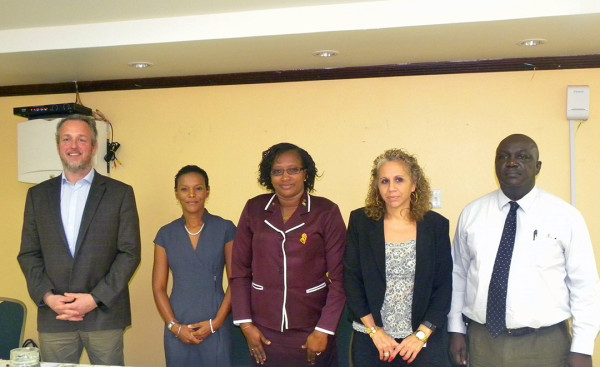Six thousand homes across 25 hinterland communities in Guyana will receive solar home systems following the inauguration on Monday of the Sustainable Business Models for Rural Electrification and Energy Access in Guyana Project by the Ministry of Public Infrastructure (MPI), a release from MPI said.
The project, which is being spearheaded by MPI’s Hinterland Electrification Unit (HEU is being done in collaboration with the not-for-profit company, CARIBSAVE, and the Multilateral Investment Fund (MIF), a member of the Inter-American Development Bank (IDB) Group.
During the launch at Cara Lodge, the release said that Minister within the Ministry, Annette Ferguson said that over 80 percent of hinterland communities have no access to electricity. In contrast, the coastland has a nearly 100 percent electrification rate, she said.

Ferguson declared that this disparity must be rectified and in light of this the government allocated $110M in the 2016 National Budget to close the gap that exists between urban areas and the hinterland.
The minister also contended that the expansion of renewable energy sources will lead to an overall positive impact on the environment and said that the project will bring big improvements to people’s lives.
According to CARIBSAVE Caribbean Regional Director, Judi Clarke, over the years, the company has focussed on a number of areas, including climate change; risk and resilience; biodiversity, ecosystems and marine conservation; and low carbon development and renewable energy. The key objective of the project is the increase sustainable, affordable, and reliable access to renewable energy technologies to rural communities in regions 1, 2, 7, 8, and 9.
The project will also focus on the development of business models for solar photovoltaic systems which will be installed in community buildings in the 25 communities. Community members and other energy sector agencies will also be trained in technical, operational, social and environmental aspects of the project.
MIF has contributed US$1.3M to the project; the project’s total amount is US$1.7M and its financing period will cover from 2016 to 2019. The 25 villages will be chosen shortly.





